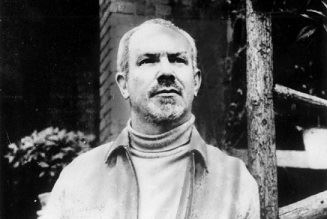 |
| (https://alchetron.com/Norman-Bethune-1282832-W ()) |
Captain America, Iron Man, Wonder Woman. They are all typical heroes we hear about. Kids read comic books, watch movies about them, and look up to these bold characters while growing up. All these fictional DC and Marvel heroes become our inspirations and role-models. Blinded by their flashy actions, we think, "Wow. I want to be just like him/her", but we do not realize that there are everyday people whose actions carry greater impact. They might not be able to fly or lift up buildings, but they can save the world in many other ways. An example of a real life hero is Norman Bethune. Norman Bethune was a famous doctor who lived from 1890 to 1939. As a doctor, Bethune accomplished many remarkable deeds, including performing the first blood transfusion, inventing medical equipment, building hospitals for the poor, etc. While living in three major places: Canada, his home, Spain, and China, where he saved many wounded soldiers, Bethune experienced harsh circumstances, allowing him to develop dedication, ambition, and a strong-will. These traits are all examples of "noble qualities". According to the Merriam Webster Dictionary, a hero is "a person admired for achievements and noble qualities"(Merriam Webster Dictionary). A hero must be able to channel these "noble characteristics" not for their own benefit, but to aid the world around them. Norman Bethune was a man who never cared about his own amenities, while simultaneously possessing a strong will to positively change and help the society. His passion keeps him a notable hero despite the passage of time.
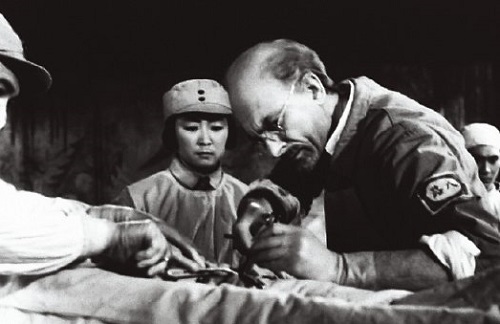 |
| Bethune operating during Sino-Japanese war (http://www.chinawhisper.com/top-9-famous-foreigner ()) |
Bethune was selfless; his priority was always to help the world around him, regardless of his own hardships. During the Sino-Japanese war, Bethune decided to spend time in China since there were no prestigious surgeons working there. Back then, in China, people's lives were not as comfortable as the ones in Canada: " His eyesight was failing, his teeth were in poor condition, and one ear had become deaf. On a final inspection tour before a planned return to Canada to receive medical treatment... he was called to battle. During an operation, he nicked his finger. There were no surgical gloves. Infection led quickly to blood poisoning [and] he died" ("Dr. Norman Bethune - A leading figure in transfusion medicine"). The lack of technology later weakened his health, but this did not impede him from rescuing soldiers. He ignored the shabby conditions and focused on what was really important- saving lives. Bethune could have easily went back home to get treatment, but because he was more concerned for other people's lives, he decided to stay and persevere through the harshness of war. When he finally planned to return to Canada, he was called to battle once again in China, and instead of rejecting their request, he went forward and continued his mission of saving lives. He did the best he could to help as many people to the very end and abandoned his comfortable life style. His selflessness later ended his own, proving his relentless commitment to his career and his moral ideology. When Bethune worked in China, he not only had to work with little medical tools, but also in horrible circumstances. One of Bethune's close friends stated in his book, The Scalpel and the Sword: the Story of Dr. Norman Bethune, "He accomplished [things] in mountain villages in the most primitive parts of China. and without any strength in his own tuberculosis-ravaged body..." (Allan and Gordon, foreword). Not only did Norman Bethune adapt to horrible conditions in order to perform surgery and save soldiers, but he also lived in some of the most underdeveloped places in China while being diagnosed with tuberculosis, a disease targeting the lung. Finding hope in such dark circumstances is difficult, but Bethune did not succumb to such negativity. He did not let these poor living conditions or his illness stop him from saving lives and easily overlooked the pain he suffered, showing the great value he attributes to other people's lives. He did not care about what he had to endure. Instead, he focused on others, exhibiting an act of selflessness. His ability to endure through pain for others cements him as a moral hero who trespasses time. Norman Bethune's accomplishments can only be seen in people who are self-sacrificing. He disregarded his own discomforts and concentrated on others.
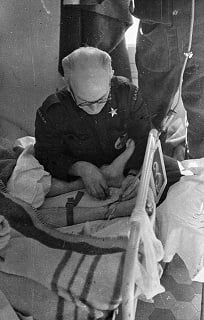 |
| Bethune transfusing blood during Spanish Civil War (http://www.biographi.ca/en/bio/bethune_henry_norma ()) |
Norman Bethune possessed the determination and will to help others by attempting to establish universal healthcare and working hard to perform the first blood transfusions. In 1936, Bethune was living in Montreal and " [he] proposed a universal health care system for Canada. Although the suggestion was not readily accepted, Bethune's good works abroad and compelling recommendations would eventually find a place in the Canadian medical system." ("Dr. Norman Bethune"). While living in Canada, Bethune was aware of the flawed health care system. Many people back then could not afford healthcare, Bethune wanted to change that. He suggested a Universal health care system, knowing that it would benefit many people, allowing everyone to share the same luxuries he had. He worked hard for his suggestions to change the state of matter in government. He was always trying to help others and stayed tenacious. Although his suggestion wasn't accepted, he still fought for what he believed in and was determined to make a positive change. He never gave up, even when his proposal was denied. His passion to help others allowed him to persevere through many denials. Dr. Bethune's continuous fight led to his belief in universal healthcare, which was later endorsed, helping millions in the future. Furthermore, during the Great Depression, Norman Bethune moved to Spain and served during the Spanish Civil War. In Spain, "Bethune recognized the need for a centralized service for collecting blood and for delivering it to the front for immediate transfusion. To raise money to expand the blood transfusion service, he went on a North American fund-raising tour. Within 5 months, the organization was supplying a 1000 km long war front with up to 100 transfusions per day..."("Dr. Norman Bethune- A leading figure in transfusional medicine"). Dr. Norman Bethune did whatever he could to bring convenience to others. He was aware that immediate blood transfusions were necessary for an injuries, understanding how this could save many soldiers lives and the advantages this could bring them. He became the first person to perform blood transfusions during battlefield. This discovery protect thousands of lives during wars. Without his determination and passion to bolster living conditions, these achievements wouldn't have happened; Bethune would have never discovered immediate blood transfusions to the battlefields. If Bethune never developed this attitude towards society, he would have never spent his time discovering a way to benefit others, or even worked hard to bring his discovery to life. Bethune's great accomplishments shows that he has a strong will to aid others and improve society. Bethune's own willpower encouraged him to pursue his dreams of impacting the world, and his hard work allowed all his desires to be accomplished, making him someone everyone can look up to.
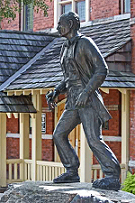 |
| Statue of Norman Bethune, located in Ontario (http://www.huffingtonpost.ca/peter-worthington/bet ()) |
Dr. Norman Bethune not only put others above himself, but he was also determined to help positively change the world. His heroic characteristics are shown through his resilience. His selflessness lead to his success, even under the poorest living conditions and working with tuberculosis- he was willing to sacrifice his own comfort in order to pursue his ambitions. Bethune worked every day to create a more equal society. His persistence and energy gave him the possibility to make a change and revolutionize the medical system. He easily adapted to the harsh living circumstances of China and built a more accomplished career there. Bethune's personality and characteristics help shape our modern world, making him someone, people can aspire to become, encouraging people to never give up on to work hard and follow your dreams no matter what gets in your way. "In a tribute to Bethune, Mao wrote, 'We must all learn the spirit of absolute selflessness from him... A man's ability may be great or small, but if he has this spirit, he is already noble-minded and pure, a man of moral integrity.. a man who is of value to the people.'" ("Dr. Norman Bethune- A leading figure in transfusional medicine"). Norman Bethune never stopped performing surgeries, helping lives, and was "a doctor to the very end." (Dr. Norman Bethune). Although he lacks the ability of flight, super strength, or super speed, he still saved the world with his nobel characters.
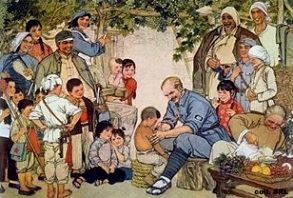 |
| A drawing of Bethune helping children in China (http://jameswongwingon-online.blogspot.com/2006/11 ()) |
Work Cited Page "Dr. Norman Bethune." Canadian Medical Hall of Fame, Canadian Medical Association, 1 Jan. 1998, cdnmedhall.org/inductees/dr-norman-bethune. Accessed 27 Apr. 2017. "Henry Norman Bethune." Encyclopedia of World Biography, 2nd ed., vol. 2, Gale, 2004, pp. 240-241. Gale Virtual Reference Library, go.galegroup.com/ Accessed 27 Apr. 2017. "The Centre for Blood Research." Centre for Blood Research, The Centre for Blood Research, 19 Feb. 2012, cbr.ubc.ca/dr-norman-bethune-a-leading-figure-in-transfusion-medicine-announcing-a-special-symposium-in-march-2012/. Accessed 1 May 2017. Gordon, Sydney, and Ted Allan. The Scalpel, the Sword: the Story of Dr. Norman Bethune. Beijing, Foreign Languages Press, 2004.
Page created on 5/22/2017 12:00:00 AM
Last edited 5/22/2017 12:00:00 AM
